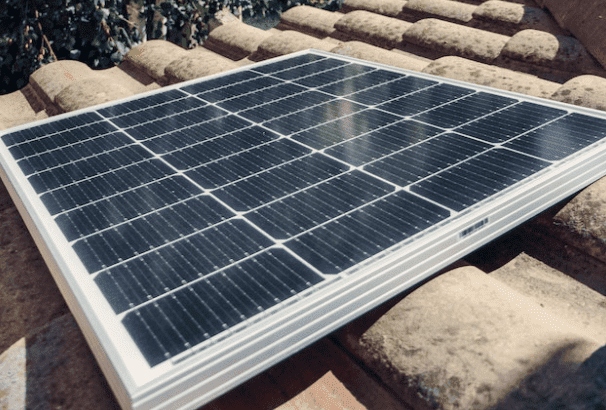Save Thousands by Investing in Solar Panels

Investing in solar panels is one of the most significant decisions that one can make in their lifetime. It not only helps in saving thousands of dollars but also contributes to a more sustainable environment. Solar energy is becoming increasingly popular due to its environmental and economic benefits. In this article, we will discuss the advantages of investing in solar panels and how you can save thousands of dollars by doing so.
Understanding Solar Panels
Solar panels are devices that convert sunlight into electrical energy. They are made up of photovoltaic cells that capture the sun’s energy and convert it into electricity. The amount of electricity generated depends on the size of the solar panel and the amount of sunlight it receives.
Different types of solar panels are available in the market. The most common ones are monocrystalline, polycrystalline, and thin-film solar panels. Monocrystalline solar panels are made up of pure silicon and are the most efficient. Polycrystalline solar panels are less expensive than monocrystalline and are made up of multiple silicon crystals. Thin-film solar panels are the least expensive and are made up of materials like cadmium, copper, and tellurium.
Factors to consider when choosing a solar panel include the cost, size, efficiency, and durability. It is crucial to select a solar panel that meets your energy needs and fits your budget.
Cost of Solar Panels
The initial investment required for solar panels can be high, but it is essential to consider the long-term savings. The cost of solar panels varies depending on the type, size, and manufacturer. On average, the cost of installing a solar panel system ranges from $10,000 to $30,000. The cost can be higher for larger homes or commercial buildings.
The government offers incentives and tax credits to encourage the use of solar energy. The federal solar tax credit allows homeowners to deduct 26% of the cost of installing a solar panel system from their federal taxes. Some states also offer additional incentives and tax credits, making solar energy more affordable.
Long-term savings are another significant factor to consider when investing in solar panels. Solar panels can significantly reduce or even eliminate your electricity bill. The amount of money you save depends on the size of your solar panel system and the amount of electricity you consume. In some cases, homeowners can earn credits for excess electricity generated by their solar panels and sell it back to the grid.
Return on Investment
Calculating the return on investment (ROI) is essential when investing in solar panels. ROI is the ratio of the net profit or savings to the investment cost. The ROI of a solar panel system depends on several factors, such as the size of the system, the cost of electricity, and the amount of sunlight received.
The average ROI for a solar panel system is around 6-8 years. However, the ROI can vary depending on the location and the amount of sunlight received. For example, homeowners in areas with a high amount of sunlight can expect a faster ROI than those in areas with less sunlight.
Factors that affect ROI include the size and efficiency of the solar panel system, the cost of electricity, and the length of the warranty. It is crucial to consider these factors when selecting a solar panel system.
Maintenance and Durability
Maintaining your solar panel system is essential to ensure its longevity and efficiency. Regular cleaning of the solar panels is necessary to remove any dirt, debris, or leaves that may accumulate on the panels. It is also important to check the wiring and connections to ensure they are in good condition.
The lifespan of solar panels is typically around 25-30 years. However, their durability depends on the quality of the panels and the manufacturer. Some manufacturers offer warranties of up to 25 years, covering any defects or damages to the solar panels. It is essential to read and understand the warranty terms before making a purchase.
It is also important to have insurance coverage for your solar panel system. Homeowner’s insurance policies may cover damages to your solar panels caused by weather, theft, or other factors. It is recommended to speak with your insurance provider to ensure that your solar panel system is adequately covered.
Choosing a Solar Panel Installer
Selecting a reputable and experienced solar panel installer is crucial when investing in solar panels. It is important to research and compares different installers before making a final decision. Here are some qualities to look for when selecting a solar panel installer:
- Experience: Choose an installer with experience in installing solar panels. Experienced installers can handle any challenges that may arise during the installation process.
- Reputation: Look for installers with a good reputation in the industry. Check for reviews and ratings from previous customers.
- Licensing and Certification: Ensure that the installer has the required licenses and certifications to install solar panel systems.
- Quality of Materials: Choose an installer that uses high-quality materials and equipment.
- Customer Service: Select an installer that provides excellent customer service and support.
Before hiring a solar panel installer, ask them questions about their experience, certifications, warranties, and pricing. It is also important to watch out for red flags such as unlicensed installers or installers that use substandard materials.
Why You Should Invest in Solar Panels
Investing in solar panels is a wise decision that can save homeowners thousands of dollars in the long run. It also contributes to a more sustainable environment by reducing carbon emissions. When selecting a solar panel system, it is important to consider the initial cost, long-term savings, ROI, maintenance, and durability.
Choosing a reputable and experienced solar panel installer is also crucial for the success of the solar panel system. With the government incentives and tax credits available, now is the perfect time to invest in solar panels. By doing so, homeowners can save money, reduce their carbon footprint, and contribute to a more sustainable future.


